When a casino allows you the option to double down, it means you can double the amount of your initial bet in return for receiving one, and only one, draw card; i.e., when you double down you give up the option of drawing more than one card. Most casinos allow you to double down on any two-card hand (hard or soft), whereas some restrict doubling to specific starting hands, e.g., doubling is allowed only on hard 10 and 11. The best player-friendly doubling rules are when you can double down on any two cards.
The two variables that determine whether or not you should double down are the total of the cards in your hand and the dealer’s upcard. As a general rule, the hands you are most likely to double are hard 8, 9, 10, and 11, and the soft 13 (A-2) through 18 (A-7) hands.
Basic Strategy for Single Decks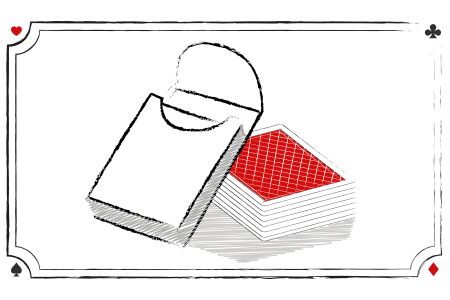
Single-Deck Hard Hands (but not 4-4)
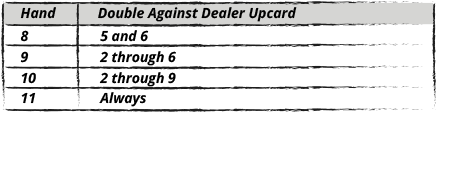
Single-Deck Soft Hands

Single-Deck Pairs

Single-Deck Doubling Down Colored Chart
The following colour-coded chart summarizes the basic strategy for doubling hard hands (including pairs) and soft hands for a single-deck game.

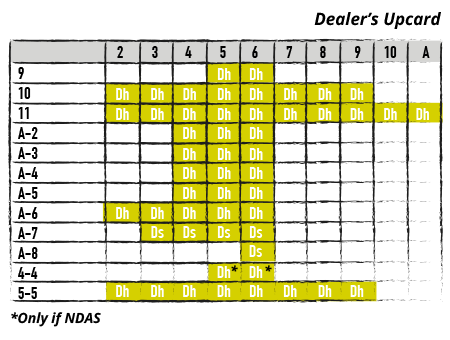

Basic Strategy for Double and 4/6/8-Deck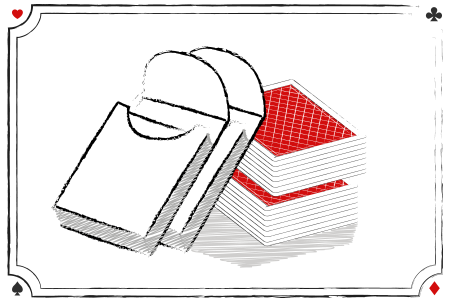
Double- and 4/6/8-Deck Hard Hands
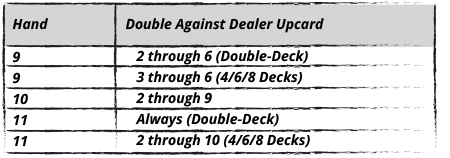
Double- and 4/6/8-Deck Soft Hands with S17

Double- and 4/6/8-Deck Soft Hands with H17
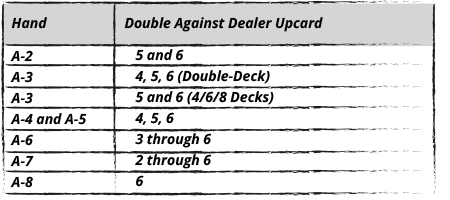
Double- and 4/6/8-Deck Pairs

The following colour-coded charts summarize the double down basic strategy for Double Deck and 4/6/8 Decks with S17, followed by Double- and 4/6/8-Deck with H17.

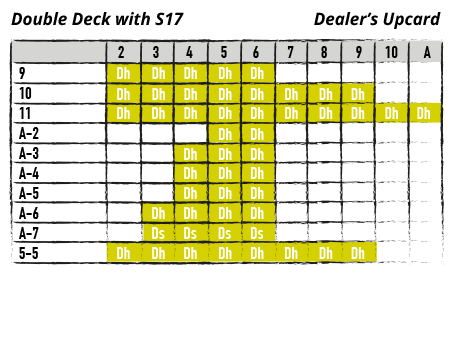
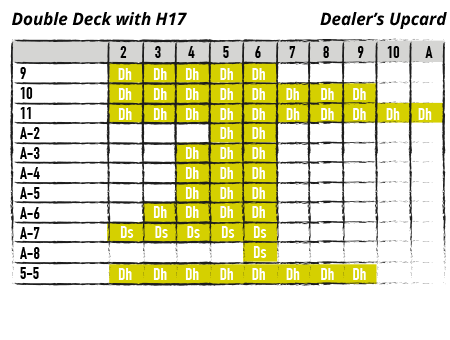
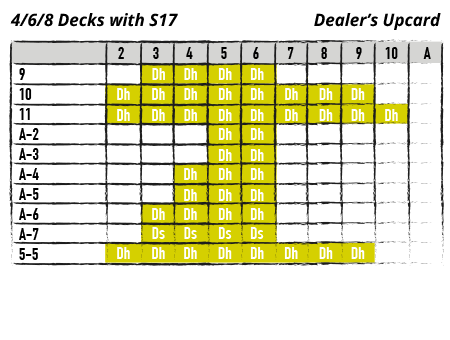
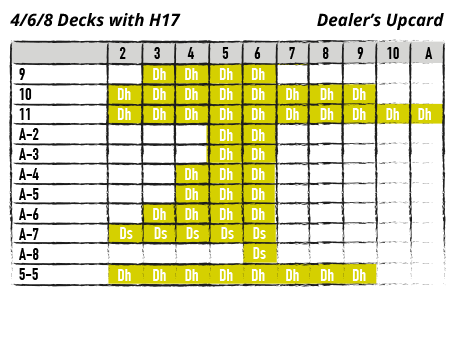

Examples of How to Use the Tables and Charts
- Single-deck game with h17, you hold 9 and the dealer’s upcard is a 2. You should double down.
- Double-deck game with h17, you hold A-8 and the dealer’s upcard is a 6. You should double-down.
- 4/6/8-deck game with s17, you hold 7-4. Dealer shows an ace. You should not double down.
You would double 7-4 against an ace only in single- and double-deck games.
Logic for Doubling Down on Hard Hands
Most of the time when you play blackjack you must play defensively because the dealer’s hand has a likelihood of beating your hand. But the logic for doubling down is you get to go on the offensive at the best possible time – when the dealer has a relatively high probability of busting or when you have the edge over the dealer on the hand.
Logic for Doubling Down on Soft Hands
The logic for doubling on soft hands isn’t always clear to players so they often pass up the opportunity. The reason you double on soft hands is not so much to outdraw the dealer as it is to get more money on the table when the dealer is vulnerable to busting (shows a low-value upcard of 2-6).
Gains from Hard and Soft Doubling
If you follow the hard doubling down basic strategy, your gain will be about 1.3%. Learn when to double down on soft hands and you’ll gain another 0.13%.
|
HIT AND STAND STRATEGY
|












